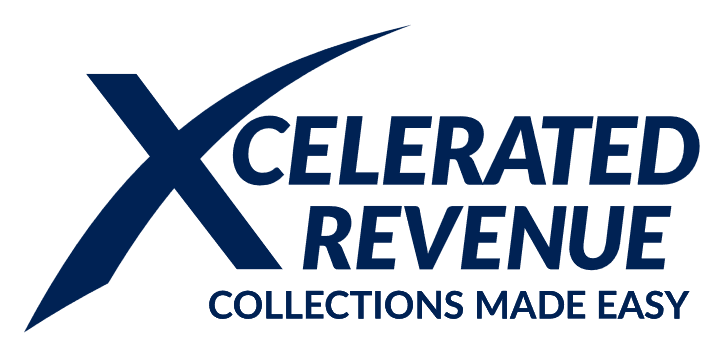
GUEST EDITORIAL
June 24, 2019 – The Fair Debt Collection
Practices Act (FDCPA) was passed in 1977, over forty years ago, at a time when
telecommunication technology was in its infancy and the consumer Internet did
not exist. Since that time, the technology used to communicate with customers
has changed drastically. As one might suspect, the FDCPA has not kept up with
these dramatic changes.
Due
to the tension between modern technology, the preferences of consumers, and the
enabling legislation, it is clear that regulators needs to modernize and
clarify certain aspects of the debt collection environment by updating
Regulation F, which implements the requirements of the FDCPA. And yet, until
the creation of the Consumer Financial Protection Bureau in 2010, no regulatory
agency had the authority to do so.
Fortunately, the CFPB is fulfilling the job it was designed for, with a recently released proposed rule to update Regulation F. The proposed rule is a mixed bag—some bad, some good. However, it is much better than what was expected out of the former Democratic administration, preventing much more sweeping changes.
Perhaps the most important reform of the proposed rule is to update the methods of communication that are permissible during a collection attempt. Text messages, application notifications, and emails are radically different forms of communication than what was available in 1970s. Indeed, the concerns that motivated the passage of the FDCPA are largely non-existent today, such as disruptive home telephone calls. That is because modern technology is much more private and can be controlled by a debtor much more easily, such as by silencing a phone or controlling certain alerts.
Further, the proposed rule would require debt collectors to send consumers a disclosure with certain information about the debt being collected on, including an itemization of the debt and plain-language information about how a consumer may respond to a collection attempt. Creating model disclosures to better inform consumers about contract terms and better protect lenders from litigation is an important role for the bureau. Collectors, for example, have been subject to litigation over “hyper-technicalities” in the content of communications, including over the placement of commas. Frivolous lawsuits help no one. This has also led to a proliferation of disclosures that discourage consumers from reading them. Simplifying the disclosure regime, helping consumers better understand their rights, and creating clear rules of the road are important for all parties.
Beyond updating communication practices and providing model validation notices and safe harbors, the bureau should be wary of the fact that debt collection is already an extensively regulated service, at both the state and federal level. Undoubtedly, there were draconian debt collection practices centuries ago that have been rightly prohibited, such as imprisonment for debt. Other conduct such as certain forms of harassment and intimidation have more recently been prohibited under the FDCPA. But virtually all of the “low-hanging fruit” has been picked and further regulation will represent a much more acute discernment between the marginal costs and benefits of new regulation.
The consequences of regulating the collection of debt are similar to the regulation of debt itself. Credit is priced according to risk. If the restrictions on collections are too great, the risk of loss is higher, as creditors will recover less from borrowers, and borrowers will have an incentive to default more often. In this case, a lender will respond in a number of predictable ways: charging more, lending less, requiring higher collateral, restricting access to credit altogether, or engaging in more aggressive collection tactics, such as litigation, more quickly. The result is that consumers are left with higher prices and lower quality products. Indeed, the CFPB’s own study found that debt collection restrictions “reduce access to credit card accounts and raise prices for credit cards,” with concentrated negative effects on sub-prime consumers.
The bureau should therefore make use of its recently established Office of Cost-Benefit Analysis to rigorously analyze the rule’s impact on competition and consumer welfare before proceeding with the rule. This is not only a necessity in pursuing good public policy development, but also a legal requirement of the bureau. Further, a dearth of empirical evidence would open the rule up to legal challenge under the Administrative Procedure Act.
Overall, however, the CFPB’s proposed rule to update the Fair Debt Collection Practices Act and Regulation F is a positive step to bring consumer protection regulation into the 21st century.
Dave Rhodehamel
DirectorXcelerated Revenue LLC
(614) 636-4234
About
We make the collections process as easy as possible for both the creditor and the customer. XcelRev was founded by two attorneys with over 35 years combined experience in the debtor-creditor industry. We’ve spent years legally representing BOTH debtors and creditors, giving us the unique ability to understand collections from both perspectives.
XcelRev was founded on 3 core principles:
1. Be part of the solution – not the problem.
– We don’t beat up debtors – that does no good. Instead, we try to
become subject matter experts on the debt, seeking a solution to whatever
problem created the delinquency.
2. Use technology.
– Our system is built upon connecting with people and we use all permitted
innovation to do it.
3. Compliance.
– Our experience with regulation, litigation & compliance
means we will always be diligent about & committed to following the rules.
We believe that customers who owe money to our clients should remain “customers”
throughout the debt collection process. Ultimately, we strive to help our
clients recover their outstanding accounts as quickly and cost effectively as
possible, but we also strive to treat every “customer” with courtesy and
respect.
Our approach is simple: make the collections process as easy as possible for both the creditor and the customer. We service creditors across various verticals, including: retail & wholesale trade, auto finance, financial, consumer debt, student loans and medical.
New CFPB Debt Collection Rule











